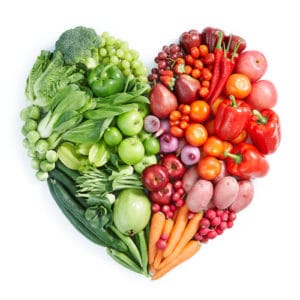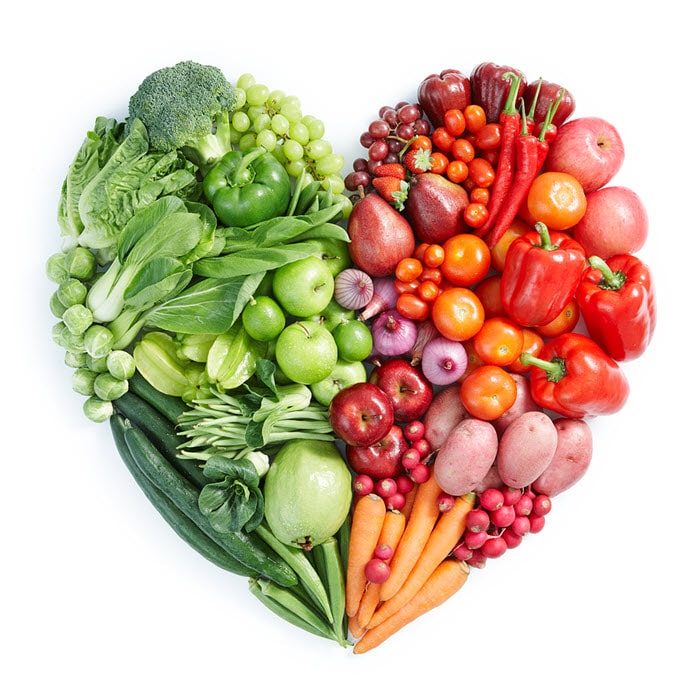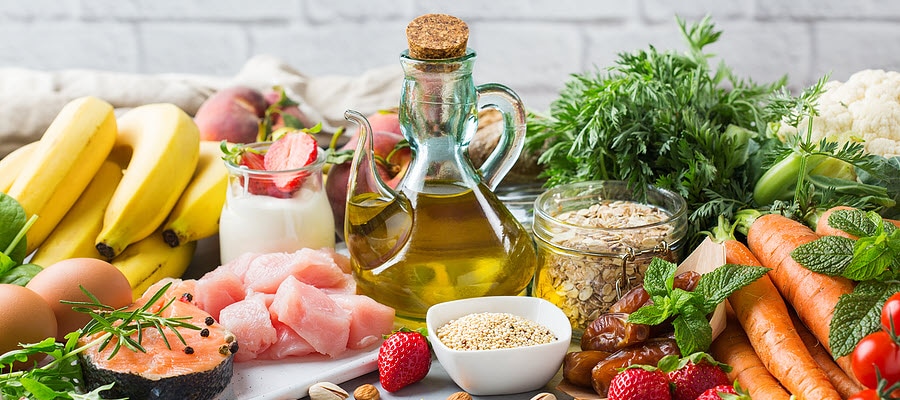Table of Contents
Many of the nootropic supplements reviewed here on Nootropics Exert® can be found in foods you should be eating every day. In fact, much of what you eat ends up in your brain. Some as nootropic food and some that your brain struggles to use as nootropic food.
Your brain accounts for only about 2% of your total body weight. But it consumes at last 20% of your daily energy supply. And that supply comes from what you eat during your day.
The problem is many of the things we eat in our modern world do not make good “brain food”. And in fact, can damage brain cells and impair cognition.
Nutrients in today’s food supply are far less than what they were 50 years ago because of the nutrient-depleted land on which our food is grown. Including the poor quality of food our farm animals are raised on.[i]
The influence of over-the-counter and prescription drugs, digestion problems, certain diseases, natural aging, and more affect how well your brain performs.
In this post we explore the nootropic foods that can boost memory and optimize brain function. And you’ll learn which nootropic supplements you can use to make up for what is missing in your daily diet.
Performance Lab® NutriGenesis Multi
Our Brains are Sculpted by What We Eat
“Food is like a pharmaceutical compound that affects the brain,” says professor of neurosurgery Fernando Gómez-Pinilla at UCLA. The professor analyzed more the 160 studies about the effects of food on the brain.[ii]
To put the professor’s statement into perspective, it helps to understand the composition of your brain. If you eliminated all the water from your brain, you’d be left with mostly fats in the form of lipids. The rest is comprised of various amino acids, proteins, micronutrients and glucose.
If everything in your brain is functioning optimally then alertness, concentration, energy, learning and memory, and mood are all working as they should.
When you feel that slump right after lunch, or are wide-awake late in the evening when you should be slowing down for sleep, it’s often because of the effects of food on your brain.
Of the lipids that make up your brain cell membranes, Omega-3’s like the essential fatty acid DHA are critical. So eating foods like fatty fish, nuts and seeds are required for the creation and maintenance of your brain cells.
One of the main problems with our modern diet is an overabundance of Omega-6’s and other fats which upset the Omega-6 – Omega-3 ratio. Omega-6 fatty acids are a class of polyunsaturated fats. The kind of fats found in cookies, cakes, factory-farmed livestock like chicken, beef, pork, farmed fish, processed foods, salad dressings, and many vegetable oils.
The average Western meal provides a much higher and unhealthy Omega-6 vs Omega-3 ratio (~15 : 1). Often resulting in chronic inflammation in body and brain. It manifests as brain fog, poor memory and mood, and eventually neurodegenerative diseases like Alzheimer’s and Parkinson’s.[iii]
Proteins contribute to the creation and repair of brain cells, neuroreceptors and the cellular machinery that make each cell function.[iv] Amino acids are precursors to the synthesis of neurotransmitters needed for cognition, memory and mood.[v]
You’ve likely noticed this yourself when you’re energized and alert after a protein-rich meal.
But fall into a slump and feel lethargic after a big plate of pasta.
One thing to keep in mind is some of the amino acids in your food often end up competing for the same transporters for travel to your brain. This is why a well-balanced meal helps provide the right ratio of neurotransmitters needed for optimal cognition and mood.
Antioxidants provided by fruits and vegetables help tame inflammation caused by free radicals. That if not controlled because you don’t eat enough antioxidant-rich food, will damage and even prematurely kill brain cells.[vi]
Micronutrients like B-Complex vitamins are cofactors required for the production of all your major neurotransmitters. And trace amounts of copper, iron, sodium and zinc are crucial to the development of your brain cells. The production of neurotransmitters and the way they work for optimal memory and mood.
Nootropic Foods are Brain Fuel
The average human brain weighs about 3 pounds (1360 g).[vii] About 2% of your total body weight. Yet it consumes over 20% of the oxygen, and nutrients you get from food.[viii]
Most of this energy comes from the carbohydrates you get from your diet. Your body converts those carbohydrates into glucose (blood sugar).
Dietary carbohydrates come from fiber, starch or sugar. The problem with nutrition labels on packaged food is these are combined and displayed as the total carb count. You do not have a clear picture of the amount of sugar compared to fiber.
This ratio is critically important to the serious neurohacker. Because this ratio will affect how your brain and body will respond to that food.
A high glycemic food like regular pasta or white bread causes a rapid release of glucose in your blood. And then it drops. Your blood sugar drops right along with a decrease in alertness, attention span and mood.
On the other hand, nootropic foods that have a slower glucose release like whole grains, legumes and beans provide a steadier glucose release. Which gives you a steady level of alertness, attention and overall sustained brain power.
A regular diet of various nutrient-rich foods is critical for optimal and sustained cognition. What you eat has a direct and long-lasting effect on your brain.
What You Eat Affects Cognition
 As I learn to listen to my body and how I feel, the effect on cognitive function from what I eat becomes even more profound.
As I learn to listen to my body and how I feel, the effect on cognitive function from what I eat becomes even more profound.
I tried an experiment a while ago. Rather than my usual breakfast of bacon and eggs, I decided to have a bowl of organic, whole grain cereal with milk. I think I may have topped it with sliced banana or a handful of blueberries.
Within an hour I felt my brain slugging along at half capacity. I didn’t feel energized like I normally do in the morning.
This reaction to a simple breakfast change surprised me at first. Until I realized that all the research and writing I’ve done on nootropics over the last few years. It should have warned me not to mess with what I knew instinctively worked well.
Organic, free-range, pastured, cage-free eggs are the ultimate brain food. Eggs come with:
- choline – helps produce acetylcholine which boosts learning and memory
- tryptophan – an amino acid that is a precursor to serotonin, melatonin and Vitamin B3 (niacin) which helps anxiety, depression, insomnia, and memory
- tyrosine – an amino acid directly involved in creating dopamine, norepinephrine, and epinephrine in your brain
- vitamin B12 – essential for the synthesis of DNA, RNA and neurotransmitters, the maintenance of myelin sheaths protecting axons, and red blood cell formation
- lutein & zeaxanthin for eye health
Bacon has been demonized by all the health gurus. But here’s the good news about our favorite breakfast meat. The saturated fat in bacon raises HDL-cholesterol (the good cholesterol). 25% of your body’s cholesterol is found in your brain. Where it improves brain cell function and provides antioxidant protection.
A typical thick slice of bacon is around 4-5 grams of protein. Providing the amino acids needed for optimal brain health. Bacon also provides Vitamin B1 (thiamine), Vitamin B2 (riboflavin), Vitamin B3 (niacin), Vitamin B5 (pantothenic acid), Vitamin B12 (methylcobalamin), Vitamin B6 (pyridoxine), iron, magnesium, phosphorous, and zinc.
Bacon is loaded with sodium. So keep your consumption down to 2 slices per day. And while I try to avoid nitrites and nitrates, cooking bacon at the relatively low temperature of 400 in the oven prevents the majority of the carcinogenic risk. But it’s best to find grass-fed bacon cured without nitrates.
Why We Need Nootropics
By becoming familiar with what foods provide the most brain benefit, you are more equipped to target each area of your brain to optimize cognition. Including alertness, concentration, focus, learning, memory and mood.
And we could do all this with food IF we lived in a perfect world, with the best, and most nutritious food grown on virgin land without pesticides and herbicides. Produced by a local farmer. So none of the nutrients are lost during travel to your supermarket.
This is also assuming you chew your food adequately, your body produces enough of and the right digestive enzymes, have perfectly functioning bile ducts, and no gut inflammation. Inflammation caused by Celiac disease, food allergies, ulcerative colitis or Crohn’s disease.
You also require enough time for digestion to take place in your gut. Digestion can be interrupted or cut short by prescription drugs, laxatives, high anxiety, excessive exercise, nervous disorders or a malfunctioning thyroid.
Then we have nutrition absorption problems associated with aging. Research shows that older adults’ ability to absorb and utilize many nutrients becomes less efficient.[ix] Meaning nutrient requirements increase. Increasing the need for specific nootropics to not only optimize, but actually maintain optimal brain function.
I cringe every time I hear or read a statement by a so-called “health professional” who claims vitamins and supplements are a waste of time and money. They say that you can get all the nutrients and fuel your body needs from a ‘healthy diet’.
It’s just not true. I’ve written about this subject and the problems with our food supply. And why we need nootropics.
But we do get some of the nutrients we need every day by eating good quality food. Many of my reviews for individual nootropic supplements on the List of Nootropics here on Nootropics Expert® include the natural food sources where that nootropic supplement is derived from in our food supply.
I encourage you to scan through the table below because you’ll begin to see a pattern. Most food-derived nootropics can be found in several foods. Many from foods we should be eating every day. And are included in the general categories of beans, leafy greens, nuts and seafood.
Beans, Greens, Nuts & Seafood
| Choline | cognition, brain function, focus, motivation and fatigue | fish, beef steak, liver, chicken liver, eggs, cod, broccoli, peanut butter and milk |
| CoQ10 | energy, cognition, memory and recall | fatty fish, beef, poultry, nuts, seeds and oils |
| Creatine | cognition and mental fatigue | wild game, red meat, eggs and fish |
| DHA | cognition, learning, memory, inflammation, brain cell repair, and neurogenesis | fish, fish oil, Krill and other crustaceans, and algae |
| Iodine | cognition, energy, memory and mood | seafood like kelp, saltwater fish, seal meat, whale meat, oysters, mussels and lobster, beans, milk and milk products, eggs, spinach and vegetables |
| L-Carnosine | cognition, energy, memory, brain cell repair | red meat and poultry |
| L-Glutamine | alertness, concentration, focus, memory, mood and anxiety | beef, pork, fish, eggs, milk and dairy products, wheat, cabbage, beets, beans, spinach and parsley |
| L-Theanine | anxiety, cognition, memory and sleep | green tea |
| Magnesium | antioxidant, brain fog, cognition, learning, memory, recall, neurotoxicity | green leafy vegetables, beans, nuts, seeds, whole grains, poultry, beef, salmon and water |
| N-Acetyl L-Cysteine (NAC) | antioxidant, anxiety, memory, and mood | ricotta and cottage cheese, yogurt, pork, chicken, turkey, duck, wheat germ, granola and oat flakes |
| N-Acetyl L-Tyrosine (NALT) | anxiety, decision-making, creativity, mood and stress | poultry, fish, dairy, nuts, soy products, lima beans, avocados and bananas |
| NADH | antioxidant, alertness, energy, focus, memory, mood and neuroprotection | meat, poultry and fish |
| Omega-3 | cognition, learning, memory, inflammation, brain cell repair, and neurogenesis | anchovies, broccoli, Brussels sprouts, cabbage, cauliflower, flaxseed, soybeans, walnuts, spinach, and tofu |
| Phenylalanine | antianxiety, creativity, decision-making, memory, mood and stress | soybeans, cheese, nuts, seeds, beef, lamb, chicken, pork, fish, eggs, dairy, beans, and whole grains |
| Phosphatidylcholine (PC) | alertness, cognition, focus, memory and mood | beef, oysters, eggs and some vegetables |
| Phosphatidylserine (PS) | antianxiety, alertness, attention, cognition, memory, recall and mood | cow brains, pig spleen and chicken hearts |
| PQQ | antioxidant, cognition, learning, memory and neurogenesis | beans, breast milk, celery, cocoa, fermented foods (i.e. tempeh, natto), kiwi, papaya, parsley, potatoes, spinach and wine |
| Pterostilbene | antioxidant, cerebral circulation, energy and memory | blueberries, grapes, and in the bark of the Indian Kino Tree |
| Resveratrol | antioxidant, antianxiety, cognition, learning and memory | red wine, blueberries, cranberries, raspberries, bilberries, grapes, peanuts, pistachios, cocoa and dark chocolate |
| Tryptophan | anxiety, depression, ADHD, SAD, OCD, PMS, memory loss, and pain | oats, bananas, dried prunes, milk, tuna, cheese, bread, chicken, turkey, peanuts and chocolate |
| Tyrosine | antianxiety, decision-making, creativity, memory and stress | poultry, fish, dairy, nuts, soy products, lima beans, avocados and bananas |
| Uridine Monophosphate | learning, memory and mood | beets, beer, broccoli, fish, mushrooms, oats, parsley, sugar cane, tomatoes, and brewer’s yeast |
| Vitamin B1 (Thiamine) | antianxiety, focus, motivation, memory and mood | beef, brewer’s yeast, legumes (beans, lentils), milk, nuts, oats, oranges, pork, rice, seeds, wheat, whole-grain cereals, and yeast |
| Vitamin B3 (Niacin) | antianxiety, alertness, clarity, focus, memory, mood, neuroprotection | eggs, fish, meat, milk, peanuts, mushrooms, green vegetables, and yeast |
| Vitamin B5 (Pantothenic Acid) | antianxiety, alertness, cognition, energy, and mood | animal organs (liver and kidney), fish, shellfish, milk products, eggs, avocados, legumes, mushrooms, and sweet potatoes |
| Vitamin B6 (Pyridoxine) | antianxiety, alertness, cognition, energy and mood | bananas, beef, chickpeas, pistachios, pork, potatoes, and turkey |
| Vitamin B8 (Inositol) | antianxiety, depression, panic attacks, mood, and OCD | a sugar alcohol and isomer of glucose found in nearly all animals and plants |
| Vitamin B9 (Folate) | alertness, concentration, initiative, psychomotor speed, social activity | energy, green leafy vegetables, citrus fruit juice, legumes, fortified foods and liver |
| Vitamin B12 (Methylcobalamin) | alertness, cognition, energy, vision, elevate mood, lower anxiety and pain, and relieve insomnia | fish, shellfish, meat (especially liver), poultry, eggs, milk and milk products |
Nootropics and Food for Optimal Performance
Our diet, exercise and sleep directly affect our brain health and mental function. For example, recent research has demonstrated the influence our food has on neuronal function and synaptic plasticity. Required for everyday functions such as learning and memory.[x]
Every one of the nootropics featured above are essential for a healthy brain. The only reason you’re able to read and understand this post is because you’re getting at least some of each nutrient from nootropic foods in your diet.
 But if you find you’re not as alert as you should be. Concentration is difficult. If you walk into a room and don’t remember why you’re there. If anxiety levels are higher than normal. Or your mood isn’t as light as you want it to be.
But if you find you’re not as alert as you should be. Concentration is difficult. If you walk into a room and don’t remember why you’re there. If anxiety levels are higher than normal. Or your mood isn’t as light as you want it to be.
You likely need the help of nootropic supplements. Because you’re not getting enough of each nutrient from food alone.
I’ve personally found that as my cognition and mood have improved from using nootropics. I’ve been inspired to make other changes as well.
My diet is cleaner and healthier with more organic food in my grocery cart. I’ve cut out nearly all fast- and processed-foods. I’m exercising several times per week. And I feel healthier than I have in years.
If this is new to you and sounds overwhelming, I suggest starting slow with some simple changes in your daily diet. Add a few nootropics to your stack where you think you need assistance.
And please consider using a high-quality multivitamin/mineral supplement like the Performance Lab NutriGenesis® Multi. And for your the Omega-3s try my favorite: Performance Lab® Omega-3.
If all you want is a quick energy boost, instead of reaching for a chocolate bar or energy bar at the grocery store checkout, try a Nu:tropic® bar instead.
Nu:tropic® bars are packed with nootropic ingredients including Norwegian Black Oats, NutriGenesis® Choline, Vitamin D, K, Riboflavin, Niacin, B12, Methylfolate, magnesium, DHA (from algae), and Phosphatidylserine (PS from sunflower).
Nu:tropic® bars come in four flavors – Apple + Cinnamon, Raisin + Almond, Salted Caramel, and Maple + Pecan. A truly delicious snack packed with nootropic ingredients.
Try: Nu:tropic® bars
You’ll be amazed at how much better you feel in as little as a couple weeks.










Join The Discussion - 10 comments
wong
February 27, 2021
Hi. David
You mention that capsules contain
other ingredients. What do you think of taking out the capsules of supplements for oral consuming. Is the effect same as taking with capsules on and does it cross the blood brain barrier easier.
David Tomen
February 27, 2021
Wong, the “other ingredients” that I have been ranting about for the last few years is mixed in with the powder in the capsules. You cannot separate the bad from the good. That’s why it is so important to find supplements that have just pure, clean ingredients in the capsules or gelcaps. With zero “other ingredients”.
Yes, you can open capsules and just use the powder. But that powder is only as pure as what the manufacturer includes in the capsule.
The ability for a compound to cross the blood-brain barrier is dependent on the nature of that compound. And not the capsule that it comes in.
Ryan
January 28, 2021
One food that wasn’t mentioned in this article is Atlantic mackerel. A 100g canned serving contains over 800mg of DHA and very close to 500mg of phosphatidylserine as well as other brain important vitamins and minerals. This superfood must not be overlooked and ought to be well stocked in the pantry of any neurohacker.
Jerry Cahill
May 28, 2020
When one talks about Grain Brain does that apply to ancient grains that are organically grown? They are taller plants and not bred for ease of harvesting?
David Tomen
May 31, 2020
Jerry, according to Dr. Perlmutter “a grain is a grain is a grain” and the human body was not originally designed to get its nutrition from grains. A high-fat, low-carb diet is what our ancient ancestors ate. And they didn’t experience Alzheimer’s and dementia that’s become an epidemic in our modern society.
Smart dude
January 28, 2021
Bravo! People used to hunt food, eat some berries occasionally, but mostly water and animal meat. Our ancestors didn’t wake up and have cereal breakfast or slice of white bread with nutela and have 5 meals per day (one the most notorious lies ever in health/food industry . People remember one thing, there is NO essential carbo-hydrate, a bit of glucose which is needed for normal brain function can be made by our own body through certain organs out of either protein or fat. If our ancestors didn’t catch anything in a day of hunting they didn’t die, cuz they have stored fat, so ketosis is natural and not opposite. One thing is to like something or not, but u can’t deny science and proofs!
David Tomen
January 28, 2021
Amen
Joseph
February 22, 2019
Has anyone tried brain glandular supplements (from sheep or pig)?
My natural health practitioner recommended it. I am not current on the research, but I have noticed improvememt in cognition, concentration and energy.
Organ meats were much more commonly consumed in the past. Eating liver and other organ meats is now much less common.
polo3
June 8, 2017
Thanks for this very interesting article on nootropic foods. Now given the results of your breakfast experiment mentioned above, what would you recommend for a good breakfast, lunch, dinner, snack, and dessert, taking into account that not all nootropic foods are good for you?
For instance flax seed and soy can interact with your T3, other hormones, and brain chemistry needed for being in nootropic flow state.
David Tomen
June 8, 2017
For me, it’s simpler to follow some basic quidelines in choosing what to eat. And what not to eat.
When shopping for food I keep in mind the Environmental Working Group’s “Dirty Dozen” list of produce to avoid. And choose organic instead. You can find that list here > https://www.ewg.org/foodnews/dirty-dozen.php
I was tested for dozens of food allergies a few months ago and don’t have a problem. But still do my best to avoid things like soy, wheat, barley and rye. So I don’t eat bread, cakes, cookies or pastries very often. Maybe once or twice per month. And certainly no cereals.
Grain in general is bad news for your brain. Dr. David Perlmutter wrote an excellent book on the subject called “Grain Brain” > http://amzn.to/2s0AcJL. I think cutting out anything made of refined grain has made one of the biggest impacts on my health.
The only sugar I use is a teaspoon in my coffee in the morning. During the day it’s less than a teaspoon of raw, unprocessed honey in green tea. The only dairy I use is a little half-and-half for scrambled eggs in the morning.
For meat, whenever I can, I choose free-range, grass-fed beef and pork. And chickens raised in similar conditions.
For breakfast I have 2 slices of bacon and scrambled pasture-raised eggs with coffee. For lunch it’s usually a salad I make myself because salads in restaurants and in the deli section are generally not made from organic produce.
For dinner it’s typically organic chicken or turkey with an organic vegetable. And white rice 2 or 3 times per week. I prefer the taste of brown rice but the arsenic levels in brown rice are much higher than in white. Occasionally it’ll be some kind of whole grain pasta. I have wild-caught salmon (when I can get it) 1 – 2 times per week for dinner.
I’m not a fan of trying to stick with a “diet”. But I’m a bit of a fanatic about staying away from processed and canned food. And farmed livestock and fish. If I can’t get organic fruit, the next best thing is frozen organic. Never canned.
Another great book by Dr. Perlmutter called “Power up Your Brain” > http://amzn.to/2s0EiSm has some general guidelines about diet in Chapter 14. The bottom-line for me is as many “whole” foods as possible. Staying away from processed and canned. Avoiding pesticides and herbicides as best I can.
I don’t snack much so can’t provide much advice. If I do, it’s usually an organic apple or a regular orange. And I don’t do desert. If I did, it would likely be organic fruit.